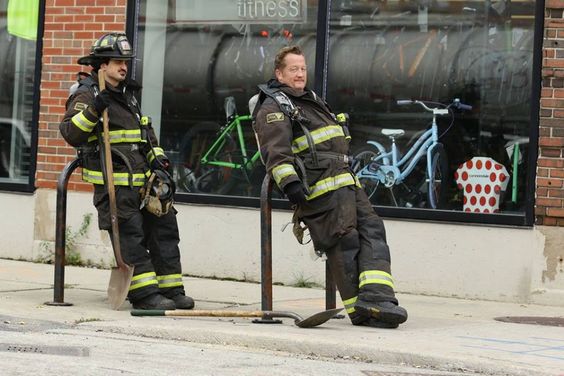
The drama surrounding Firehouse 51, the fictional firehouse from the popular television series Chicago Fire, often presents viewers with intense scenarios that challenge the moral fiber and professional integrity of its characters. Amidst the chaos of flames, rescues, and life-threatening situations, the question arises: when tough choices need to be made, who really deserves to be fired from Firehouse 51? As the team navigates personal struggles and workplace dynamics, the lines between right and wrong blur, forcing us to evaluate the reasons behind these difficult decisions.
The Stakes of Firefighting
Firefighting is not just a job; it’s a calling that requires unwavering commitment, teamwork, and trust. Each firefighter at Firehouse 51 plays a crucial role in protecting lives and serving the community. However, the high-pressure environment also creates vulnerabilities, leading to decisions that can have dire consequences. In such a setting, accountability becomes essential, but it is often complicated by personal loyalties and emotional baggage.
The Characters in the Hot Seat
1. Kelly Severide
Kelly Severide, played by Taylor Kinney, is one of the most dynamic characters in the series. Known for his bravery and skill, Severide’s reckless behavior and impulsive decisions have led to multiple conflicts with his superiors and colleagues. While his heart is in the right place, his tendency to prioritize his instincts over protocol has raised serious questions about his suitability for leadership.
Severide’s actions often put himself and his team at risk. Should he be held accountable for decisions that jeopardize the safety of others? The tough choice here lies in recognizing his potential for growth against the need for discipline and order within the firehouse.
2. Matthew Casey
Matthew Casey, portrayed by Jesse Spencer, has consistently shown dedication and leadership, yet he also faces moments of personal conflict. His struggle to balance his role as a firefighter with his responsibilities outside the firehouse sometimes leads to questionable decisions. While he typically embodies the ideal firefighter, Casey’s recent lapses in judgment have raised eyebrows.
Should a few poor decisions overshadow years of committed service? Evaluating Casey’s worthiness of retention requires consideration of his past contributions and potential for redemption versus the implications of his recent actions.
3. Stella Kidd
Stella Kidd, played by Miranda Rae Mayo, is a passionate and capable firefighter. However, her journey has been tumultuous, marked by moments of doubt and insecurity. Kidd has faced criticism for allowing personal issues to affect her work, leading to mistakes that could have serious consequences during emergencies.
Is it fair to consider Kidd for termination due to her struggles, or does she deserve support to help her overcome personal obstacles? The choice here illustrates the need for compassion and understanding within a demanding profession.
The Role of Management
The decisions made by Chief Boden (Eamonn Walker) and Lieutenant Casey reflect the complexity of leadership in high-stress environments. While they must prioritize the safety and efficiency of Firehouse 51, they are also tasked with mentoring and guiding their team. The line between discipline and compassion can be thin, and the consequences of their decisions can resonate throughout the entire team.
Should management prioritize maintaining a strict code of conduct, or should they adopt a more supportive approach, recognizing that personal challenges can impact professional performance? The answer to this question lies in understanding the intricate dynamics of teamwork and leadership.
The Impact of Firing Decisions
Firing a team member can have profound effects on morale and the overall functionality of Firehouse 51. Each character brings unique strengths and perspectives, contributing to the diverse fabric of the firehouse. Terminating an employee not only affects the individual but also impacts their colleagues, potentially leading to distrust and a fractured work environment.
Furthermore, the fear of termination can create a culture of silence, where team members are less likely to seek help or speak up about concerns. In a profession where communication and collaboration are vital, fostering a supportive environment is crucial.
A Path Forward
Instead of focusing solely on who deserves to be fired, perhaps the better question is how Firehouse 51 can cultivate a culture of accountability, support, and growth. Investing in mental health resources, providing mentorship opportunities, and fostering open communication can help team members navigate their challenges more effectively.
Conclusion
In the world of Chicago Fire, tough choices are a reality that the characters of Firehouse 51 must confront daily. The question of who deserves to be fired is multifaceted, encompassing not only individual actions but also the broader implications for teamwork and morale. By prioritizing support and understanding, Firehouse 51 can navigate the challenges of personnel decisions while preserving the strong bonds that make them effective in their life-saving mission. In the end, the true strength of Firehouse 51 lies not just in their firefighting abilities but in their resilience as a team, united in purpose and compassion.